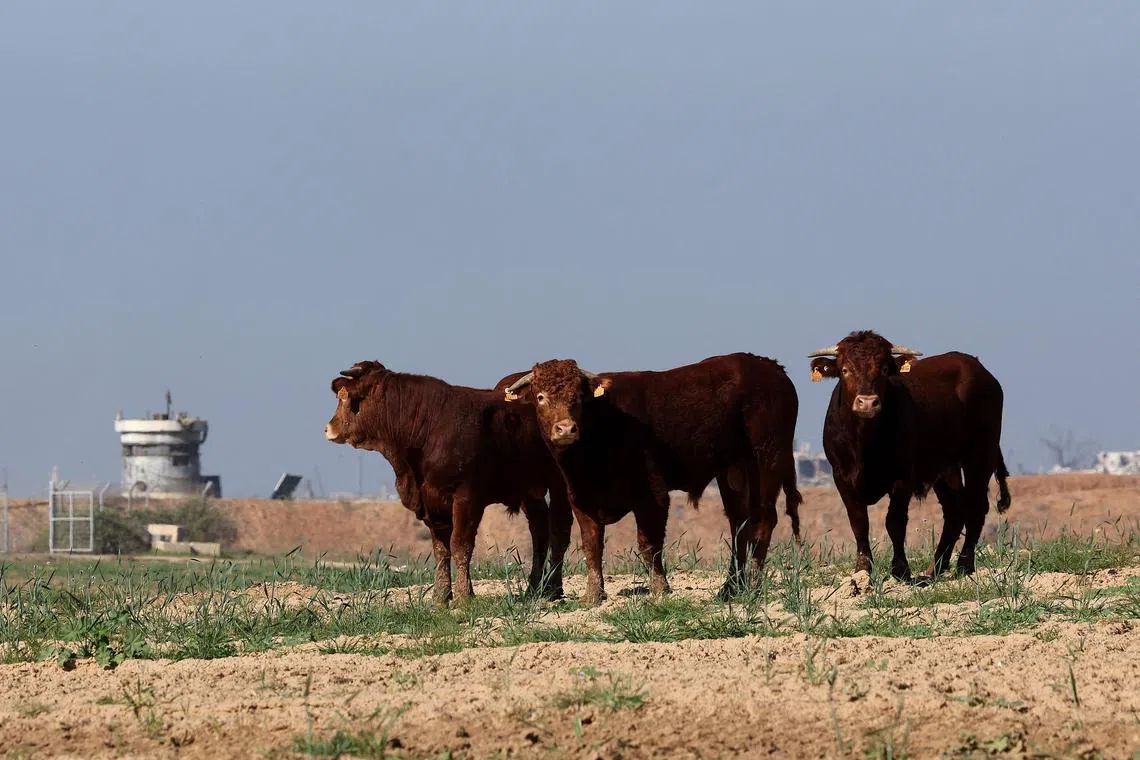Animal feed for Gaza blocked for months at border: UN food agency
Sign up now: Get ST's newsletters delivered to your inbox

The barley was intended to feed milk-producing cows in northern Gaza, but it is not known if the cows were still alive.
PHOTO: AFP
Follow topic:
GENEVA - The United Nations food agency said on March 26 that shipments of animal feed to sustain milk-producing cows were blocked at the border into Gaza for months as Israel pressed its offensive against Hamas militants in the besieged Palestinian enclave.
The barley intended for farmers and herders, mostly in northern Gaza, would have been “enough to produce milk for all the children in Gaza for over a month”, said Mr AbdulHakim Elwaer, assistant director-general of the Food and Agriculture Organisation.
“We had trucks from December of animal fodder and we had difficulties,” Mr Elwaer said.
The blockade had now been lifted, but the shipments had not yet entered Gaza, he said.
Mr Elwaer did not name which authority had refused the aid, but inspections at the Rafah crossing into Gaza are carried out by Israel. The country’s Cogat, a Defence Ministry agency tasked with coordinating aid into Gaza, did not immediately respond to a request for comment.
The supplies sat near the border for two months after receiving initial approval by Israel.
The war has created a humanitarian catastrophe in Gaza, with hundreds of thousands of Palestinians left homeless by Israeli bombardments, and food, drinking water and medicines scarce. UN agencies say a famine is imminent.
Aid agencies say Israel is not doing enough to allow access, especially to isolated northern Gaza, and have pressed the authorities to do more. Israel denies it has delayed deliveries of relief items, saying the UN has failed to distribute aid within Gaza.
Mr Elwaer said the fodder was refused at the border since the priority shipments were food and water. He said he was notified in late March that the refusal had now been lifted.
“We have to go through a long process of fumigation and preparation before sending them again to Rafah. And even if (they) get to Rafah, we are not sure to get them to the north of Gaza,” he said.
It was not known if the cows were still alive. REUTERS

